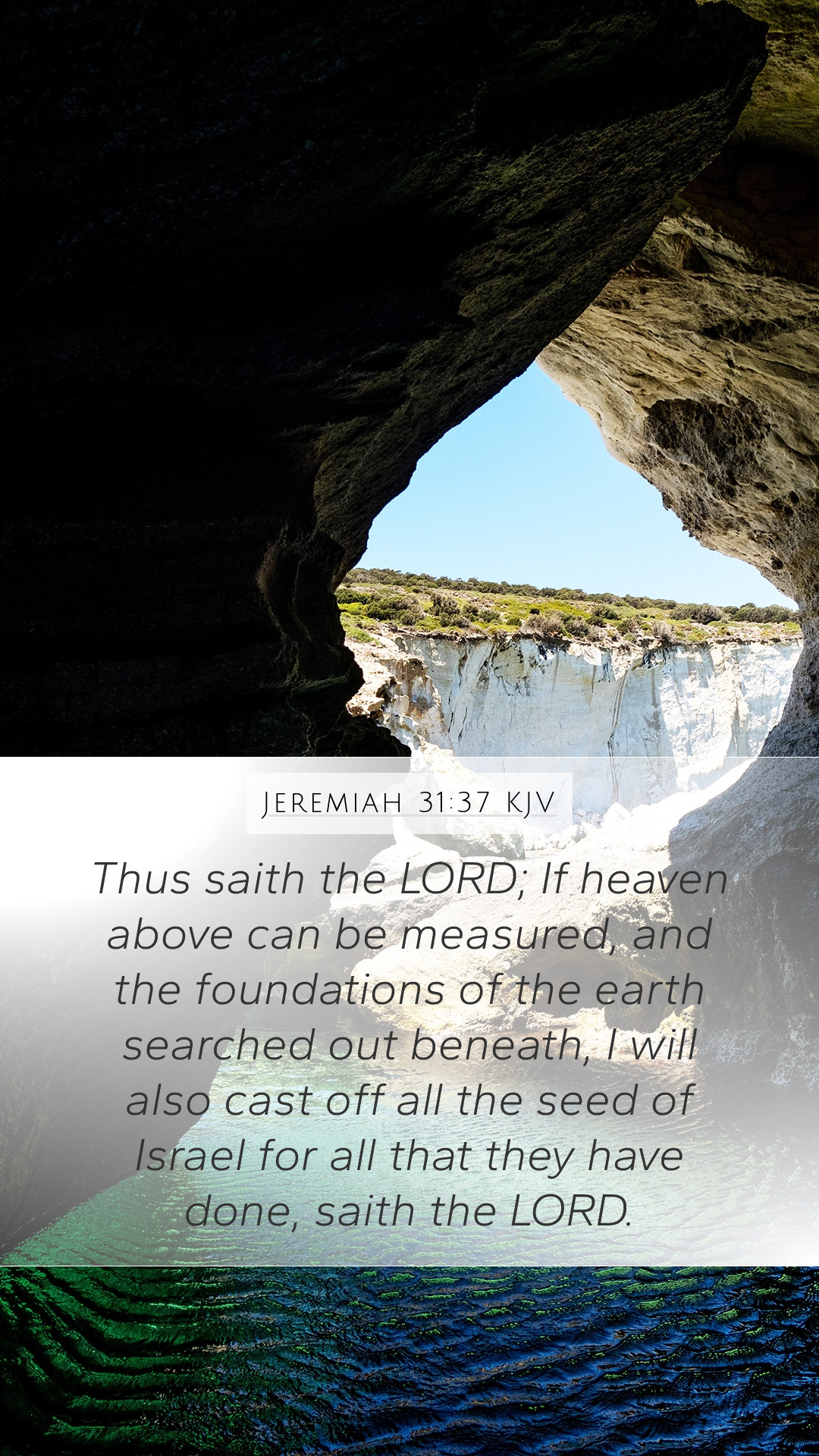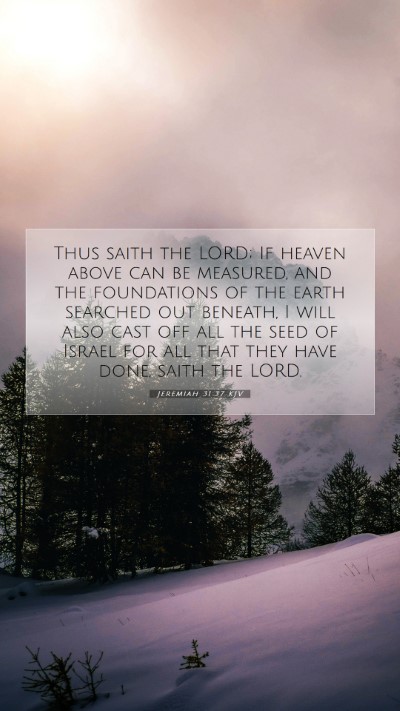Bible Verse Commentary on Jeremiah 31:37
Jeremiah 31:37 states: "Thus saith the Lord; If heaven above can be measured, and the foundations of the earth searched out beneath, I will also cast off all the seed of Israel for all that they have done, saith the Lord." This verse is rich in meaning, offering profound insights into God's unchanging promises and the enduring nature of His covenant with His people.
Understanding the Verse
This verse emphasizes the permanence of God's covenant and how no matter the circumstances, the relationship between God and Israel will endure. To fully grasp its significance, we can combine insights from various public domain commentaries:
Matthew Henry's Commentary
Matthew Henry explains that this verse is a declaration of assurance from the Lord, showcasing His infinite knowledge and omnipotence. He emphasizes that just as the heavens cannot be measured and the depths of the earth are unfathomable, so too is God's commitment to Israel unwavering. Henry underscores that the phrase "I will also cast off all the seed of Israel" is contingent on the seemingly impossible task of measuring the heavens, illustrating the certainty of God’s promise despite Israel's failures.
Albert Barnes' Notes on the Bible
Albert Barnes highlights the metaphorical nature of measuring the heavens and searching the depths as representing the impossibility of comprehending God's will fully. He points out that this verse serves as a stark reminder that even when the Israelites have strayed, God's grace and faithfulness remain constant. Barnes notes that God's promise to preserve Israel is irrevocable, emphasizing the themes of hope and redemption prevalent throughout the Book of Jeremiah.
Adam Clarke's Commentary
Adam Clarke delves into the symbolic meanings behind the terms "heavens" and "earth," suggesting they represent God's authority over all creation. He posits that the inability to measure the heavens is akin to an expression of unlimited grace and mercy that God extends toward His people. Clarke also notes the historical context, stressing that the Lord's profound commitment to Israel should prompt a reflection on the wider implications of disobedience and the potential for hope despite past sins.
Key Themes and Implications
- The Irrevocability of God's Promises: The verse reassures believers that God's promises are steadfast, and His covenant with His people—Israel—is everlasting.
- The Nature of Repentance: It invites reflection on the nature of repentance and the possibility of restoration despite failures.
- The Omnipotence of God: The verse showcases God's power, indicating that human attempts to understand God's plans are limited.
Application to Daily Life
For readers seeking to apply this verse to their daily lives, understanding Jeremiah 31:37 can offer comfort and hope. Just as God remains faithful to Israel, believers today can trust in His promises and mercies. No matter the depth of their struggles or sins, there remains a path to restoration through repentance and faith.
Related Bible Verses
- Isaiah 54:10 - God's enduring love and commitment to His people.
- Romans 11:1-2 - The assurance that God has not rejected His people forever.
- 2 Timothy 2:13 - The promise that even when we are faithless, God remains faithful.
Conclusion
In conclusion, Jeremiah 31:37 serves as a profound reminder of God's unshakeable commitment to His people, the boundless nature of His grace, and the hope that arises from understanding His promises. This verse, along with insights from public domain commentaries, encourages deeper Bible study insights and a more profound reflection on the nature of God's relationship with humanity.


